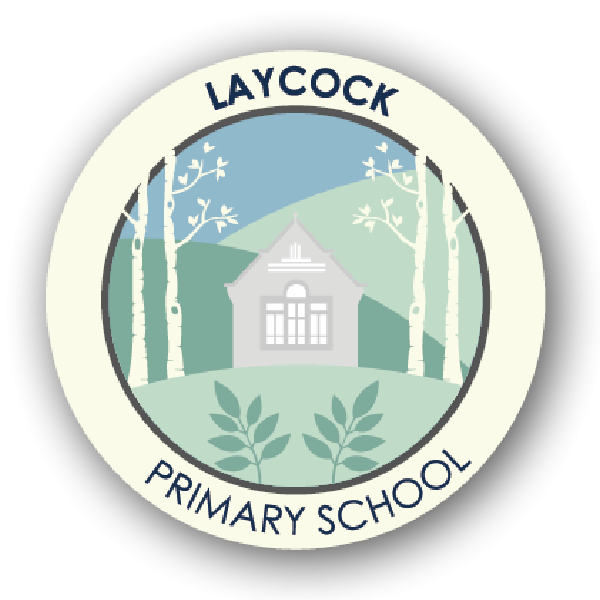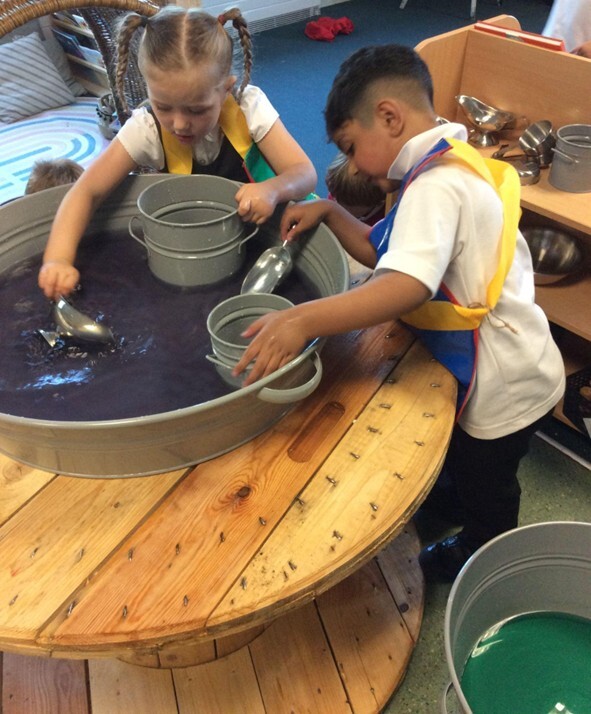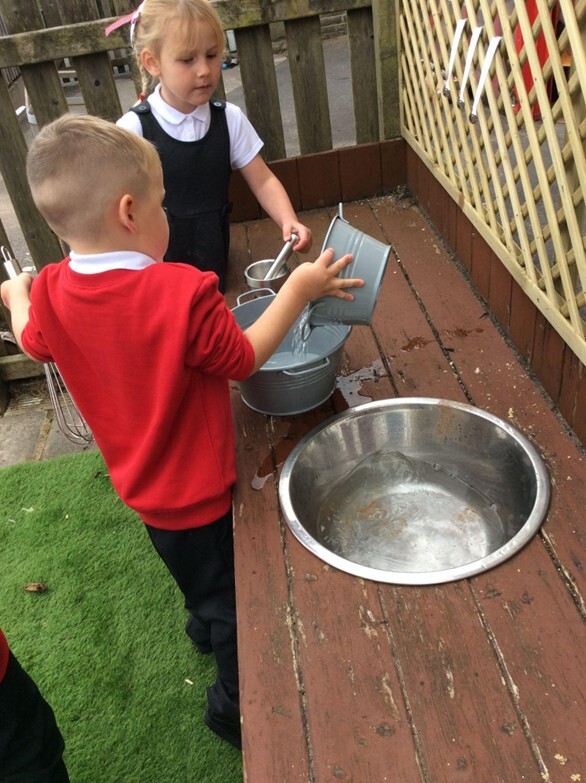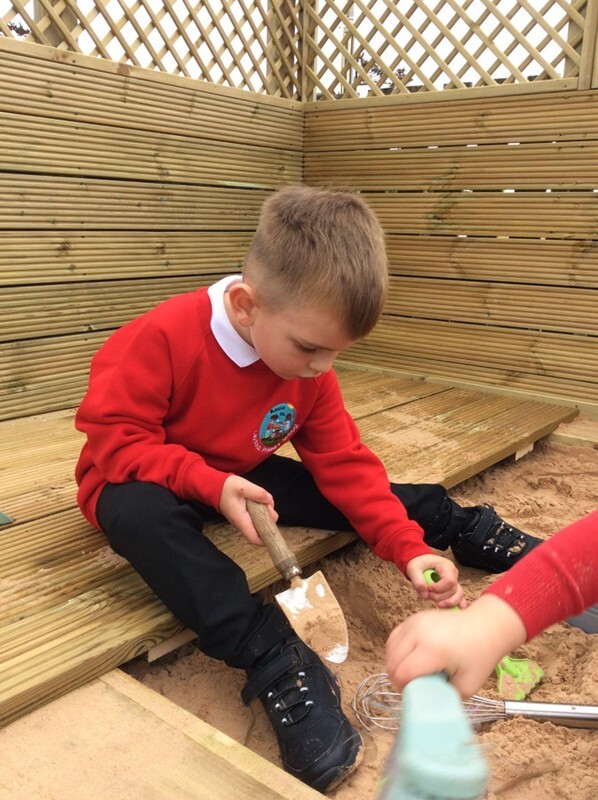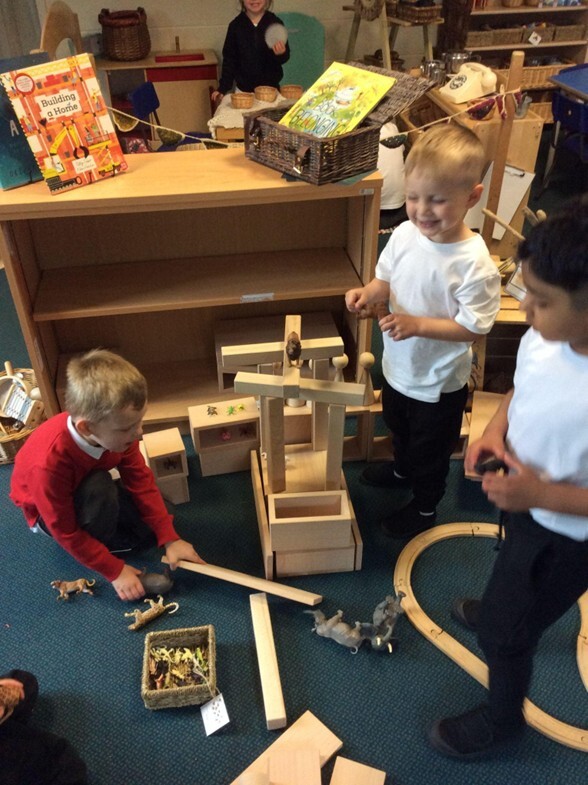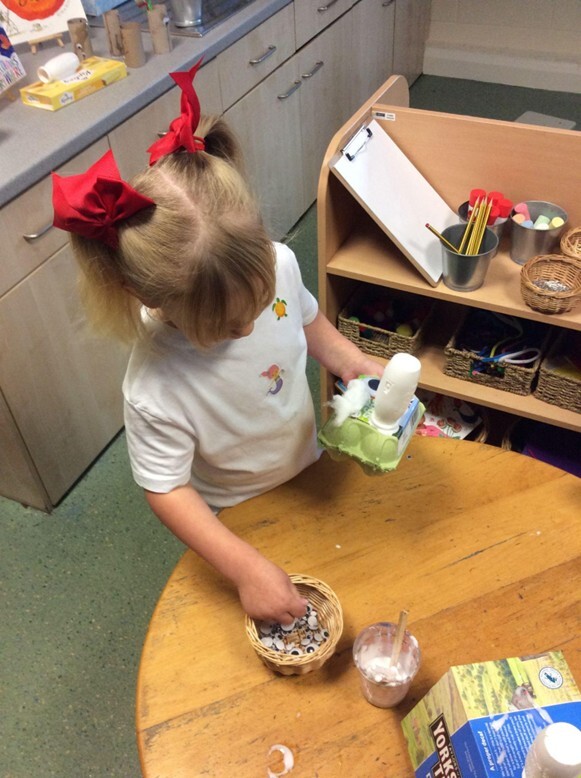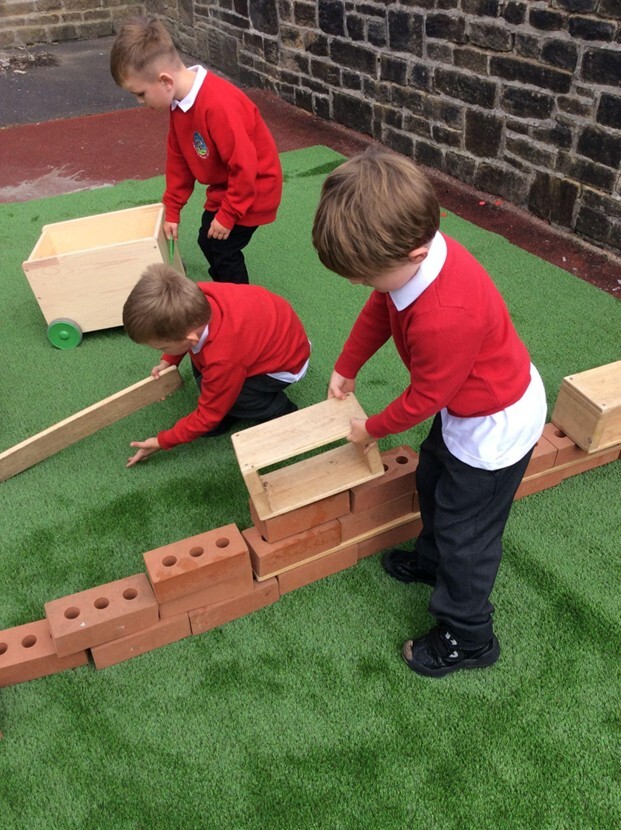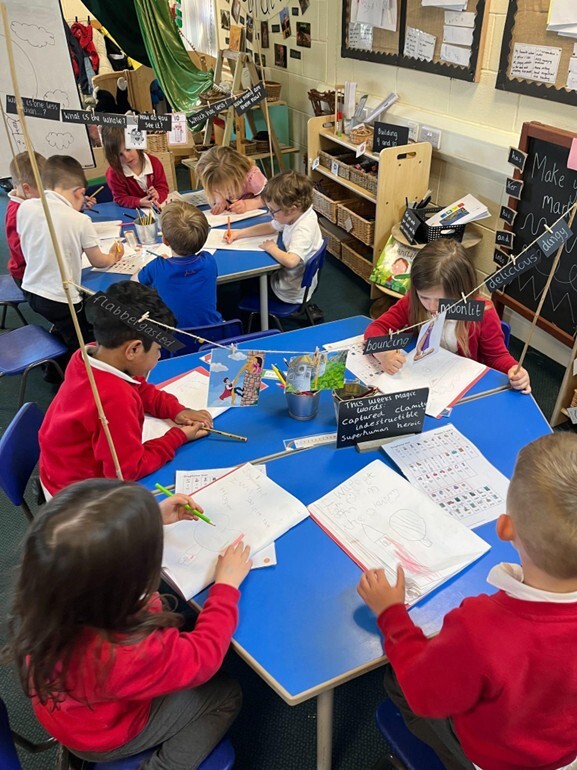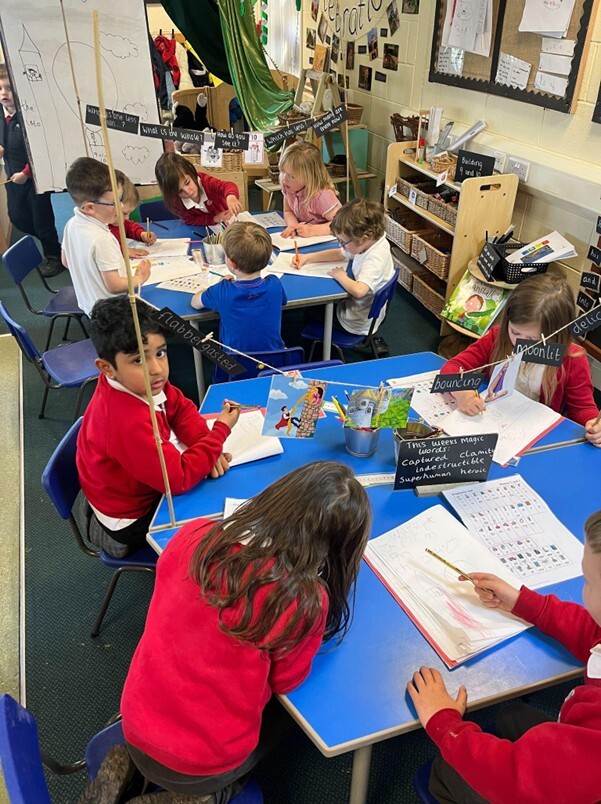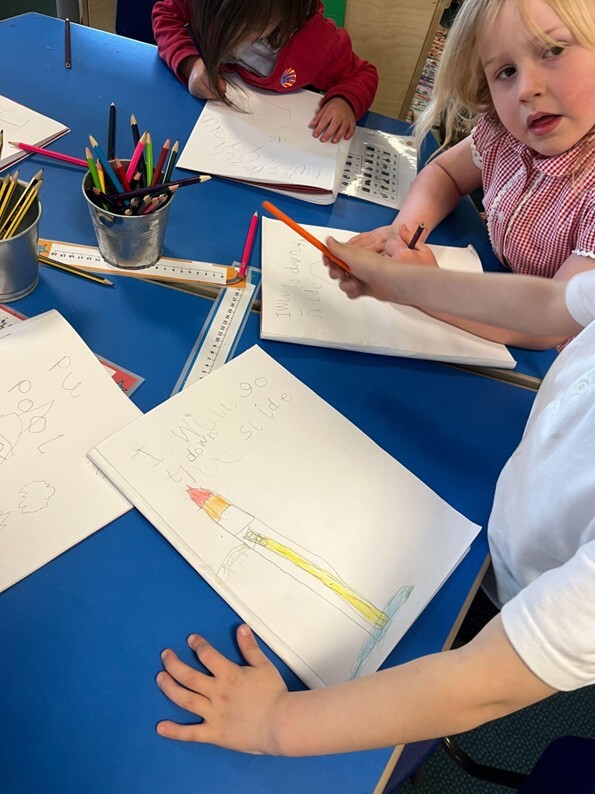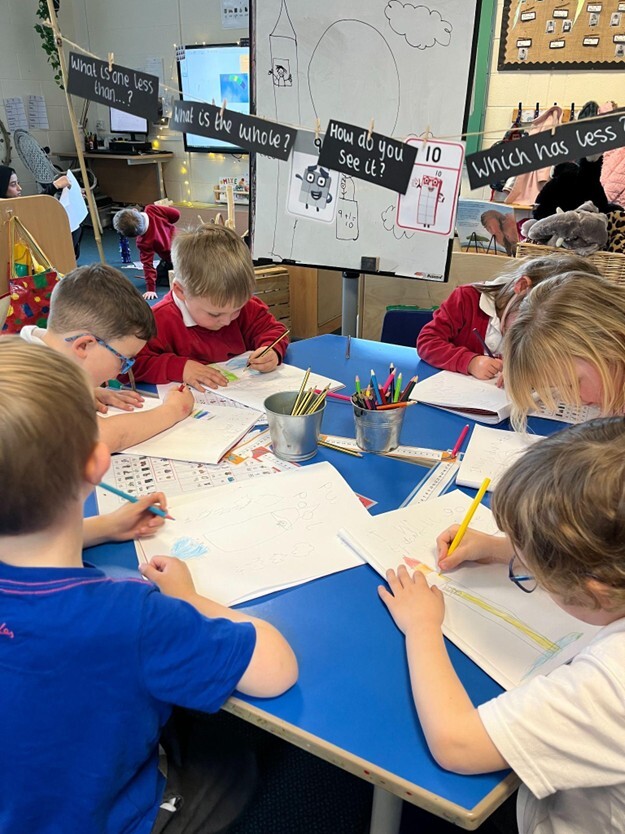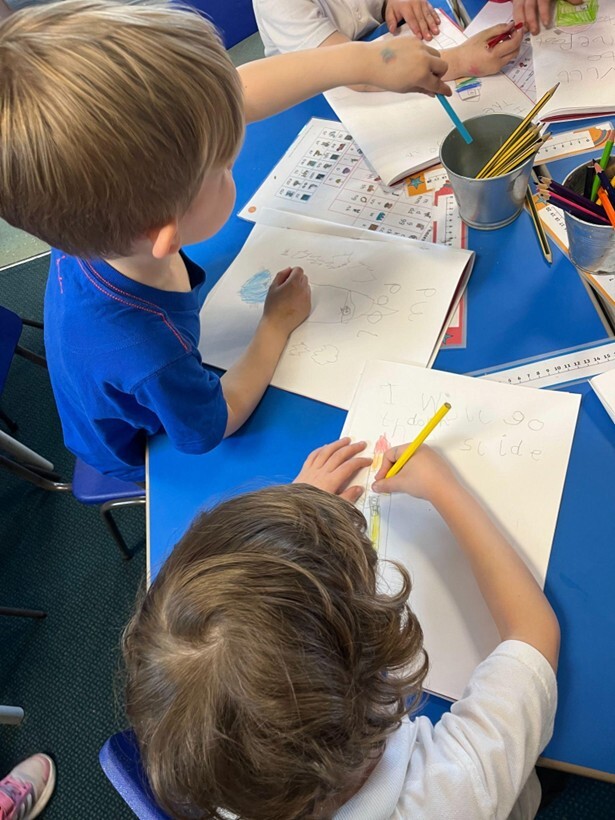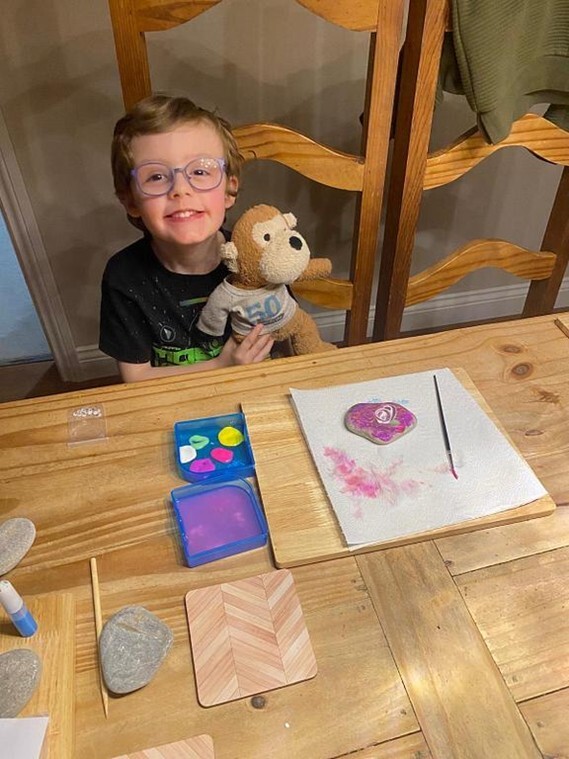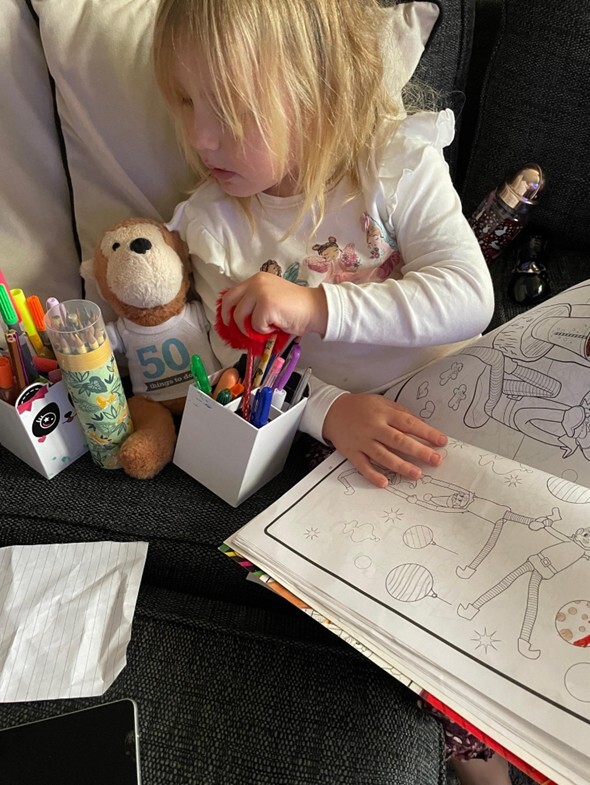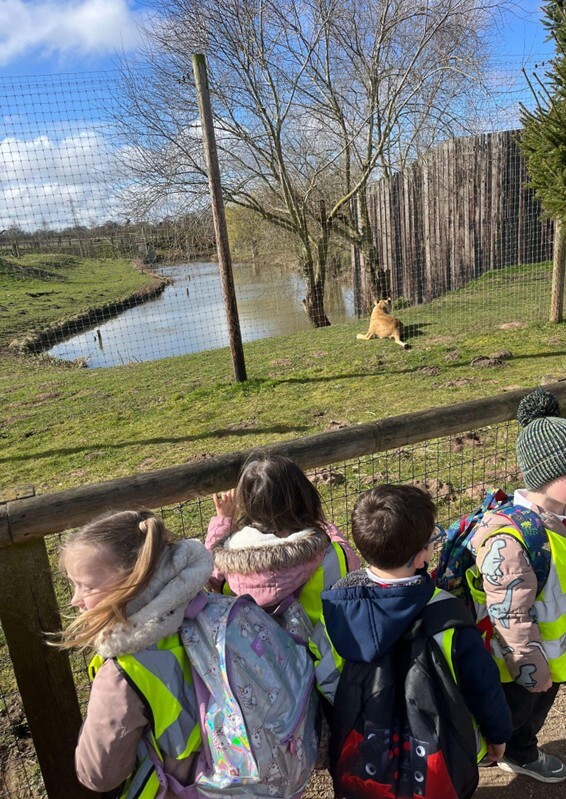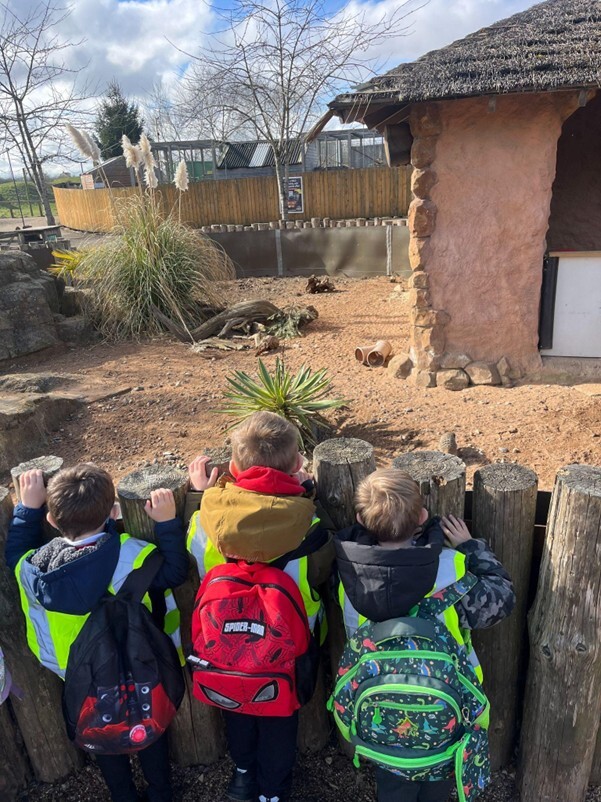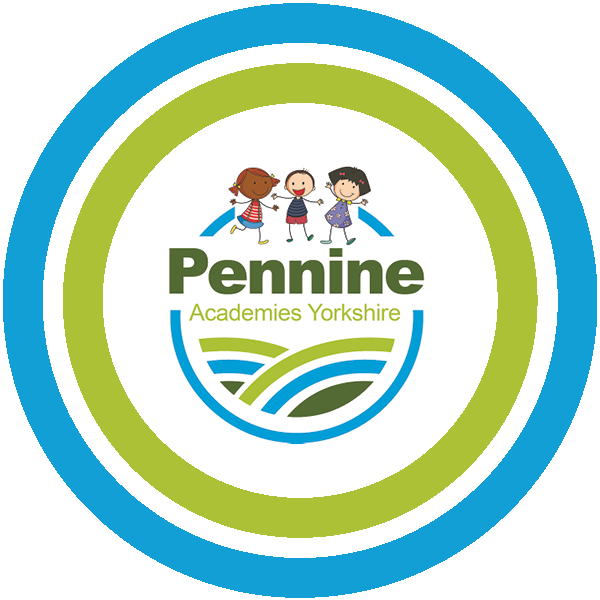Our Early Years
We aim to provide children in the Early Years at Laycock with high quality provision and a supportive, inviting environment. We cover all areas of the curriculum in an engaging way that aims to spark a joy of learning from the very start of your child’s journey through school. In September 2024, we updated our Reception classroom and outdoor area, introducing new areas of free- flow provision as well as additional resources, including the addition of a large outdoor sandpit. We have found this has led to more confident, independent children who are able to choose where they wish to explore, within high quality provision that inspires and supports learning. We are a half form entry class with a maximum number of 15 children in Reception which enables all children to develop relationships with staff and children, and enables us to cater to all children’s needs and interests.
Literacy and Phonics
Our Literacy scheme sparks imagination, creativity and a love of stories, drawing and writing. ‘Drawing Club’ focuses on the 3 ‘M’s, mark making, mathematics and making conversation. From January in EYFS, children begin Dictation lessons, where they are encouraged to apply their Phonics skills to spell words and write a sentence to describe a picture. This introduces more formal aspects of writing such as finger spaces and full stops in preparation for Year One.
We follow the Little Wandle Phonics scheme, starting Phase 2 from the beginning of Reception. This scheme enables all children to be exposed to learning at the same rate, ensuring no child is left behind and every child has the opportunity to make progress. We take part in regular review days to ensure this is being taught with fidelity to the scheme across EYFS and KS1. All relevant staff take part in training to ensure they have an understanding of how to teach Phonics correctly at each Phase. Data is also looked at across phases regularly to ensure children are progressing at expected rates and being given sufficient support to plug any gaps in learning.
Reading groups take place three days a week which focus on a specific skill such as blending, comprehension or sentence reading. These small groups are arranged into ability so all children are working on similar targets. In Phonics, children practise correct letter formation and by Phase three are writing words which they segment and blend, some independently and some with support. In Maths, we follow the Read Write inc. scheme for Reception. We begin lessons with a starter which ensures mastery of skills such as subitising dot plates. We teach lessons in an interactive way using physical resources which encourage children to engage in their own learning and cement mathematical concepts. Number formation is introduced early in Reception, and practised through Drawing Club, where children are encouraged to write a ‘magic code’, which includes a number alongside a word or sentence as their skills progress throughout the year.
Assessment in the EYFS
We follow the Early Years Foundation Stage (EYFS) Curriculum. The EYFS curriculum is taught through seven areas of learning, three are known as the Prime areas and the remaining four as Specific areas.
Prime:
-
Communication and Language;
-
Personal, Social and Emotional Development;
-
Physical Development.
Specific:
-
Literacy;
-
Mathematics;
-
Understanding the World;
-
Expressive Art and Design.
The Characteristics of Effective Learning and Teaching:
The ways in which a child engages with other people and their environment underpin learning and development across all areas and support the child to remain an effective and motivated learner. The 3 Characteristics of Effective Learning are:
-
playing and exploring; finding out and exploring, playing with what they know, being willing to ‘have a go’
-
active learning; being involved and concentrating, keeping trying, enjoying achieving what they set out to do
-
creating and thinking critically; having their own ideas, making links, choosing ways to do things.
Children are assessed when they join us in Reception using the Reception Baseline Assessment. This provides a starting point for measuring progress in relation to the Early Learning Goals, including Communication and Language, Mathematics and Understanding the World. We use this assessment to flag any areas of low attainment on entry and to put in place individual targets and support that is required going forward. The baseline assessment acts as a progress measure that enables us to support our pupils to progress effectively between Reception and Year 6. When they start Reception children are assessed using the Baseline Assessment, which gives an overall picture of the current level skills including of children’s understanding, Communication and Language and Mathematics. In Phonics, children are assessed half termly using the Little Wandle Assessment format. This tracks progress and is used to plan interventions and targets. A holistic approach is used to assess many areas of the EYFS curriculum such as PSED, Physical Development and Understanding the World. Staff build strong relationships with every child which enables us to get to know the individual and regularly update their next steps throughout the year. All children work towards attaining ELG at the end of Reception. Learning windows also contribute to gathering evidence of the level children are currently working at.
Small group interventions take part daily for children who require extra support including reading, Phonics and Speech and Language groups. Gaps in learning that have been highlighted through target setting will be addressed, for example plugging gaps in sound knowledge, blending words to read, or improving listening , attention and understanding through colourful semantics. This support will also be given throughout the day within provision, for example if a child’s target is fine motor development and name writing, this will be done with a member of staff and displayed on their learning window regularly to record progress made towards the target. All staff should be aware of every child’s current targets in order to provide the correct support to every child and ensure progress is being made.
Learning Windows
Children’s learning is evidenced through Learning Windows, which are displayed on boards within the classroom with a photograph of each child and a display of their current work. Every Learning Window displays children’s interests as well as their current targets, which are regularly updated according to their current ‘next steps’ for learning. The windows ensure anyone that comes into the classroom can quickly access information about the child, for example how their interests could be used to enhance learning through provision, or to identify a target that could be worked on with an individual or a small group of children. These targets relate to the Early Learning Goals, and could include aspects such as PSED- sharing at the beginning of the year, developing pen hold and fine motor skills, moving on to blending in Phonics, developing name writing/ letter formation and sentence writing for example. Learning Windows have enabled staff in the setting to quickly create relationships with the children as they learn about their interests, as well as being able to clearly see the child’s next steps of learning. Children have been keen to create masterpieces and pieces of writing to display proudly on their windows. These windows are updated regularly in order to monitor children’s progression over the course of the year. Targets are updated regularly on windows by staff in the setting, which are then targeted in provision or through interventions.
Staffing
The staffing in EYFS consists of the Reception Class Teacher who delivers whole class inputs, as well as a learning support apprentice who provides small group inputs including reading groups, and provides support to individual pupils. The Reception classroom and outdoor area contains high quality provision which ensures children are taking part in both adult and child led learning throughout the entire day. All Early Years staff are trained to deliver high quality interaction through provision to enhance children’s learning and vocabulary.
Parent Communication
Parents are regularly updated with the children’s learning progress through Class Dojo and are able to send photographs of learning or experiences they have had at home which they then talk about in class. In Reception, we take part in the ‘50 things to do’ programme, which gives parents ideas of activities for families with young children. Children take home Ludic the monkey and collect photos of their adventures in a class book. Parents regularly meet with Class Teacher at parents evening and on the classroom door at pick up and drop off. Parents are also invited into school regularly for activities such as stay and play events.
Home visits are carried out by the Reception Class Teacher to all children before they start in Reception. If children attend a Nursery, a visit will be carried out to the setting, as well as holding discussions with Nursery staff. This ensures the Class Teacher begins to form relationships with all children and parents. It also ensures the correct support is put in place from the very beginning of their time in Reception.
Class Dojo is used daily with the children to reward positive behaviour such as working hard, listening and teamwork. Dojo’s are displayed for children to see, and children feel proud to gain points, working towards a Dojo certificate at the end of the week. Dojo is also used to communicate quickly and easily with parents and to pass on any vital information, as well as regularly update them with photographs of their learning and what they have been doing at school.
Pupil experiences
A number of enrichment activities and trips to enhance the curriculum take place over the course of the EYFS. In the Spring term, Reception class go on a school trip to Keighley Library where they will read and discuss stories, take a book home and parents will be encouraged to take out a Library card. We hope to promote a love of reading and reading for pleasure in the home setting. In Spring 2, Reception visit Yorkshire Wildlife Park, which links to the topic ‘animal magic’. In Summer 1, they will visit Tropical World which will go alongside the topic ‘How will my garden grow’. There will also be a number of visits and assemblies for children to take part in throughout the Year including a visit from the Keighley Police, a Rock Steady music assembly, performances including the nativity and looking after butterflies.
